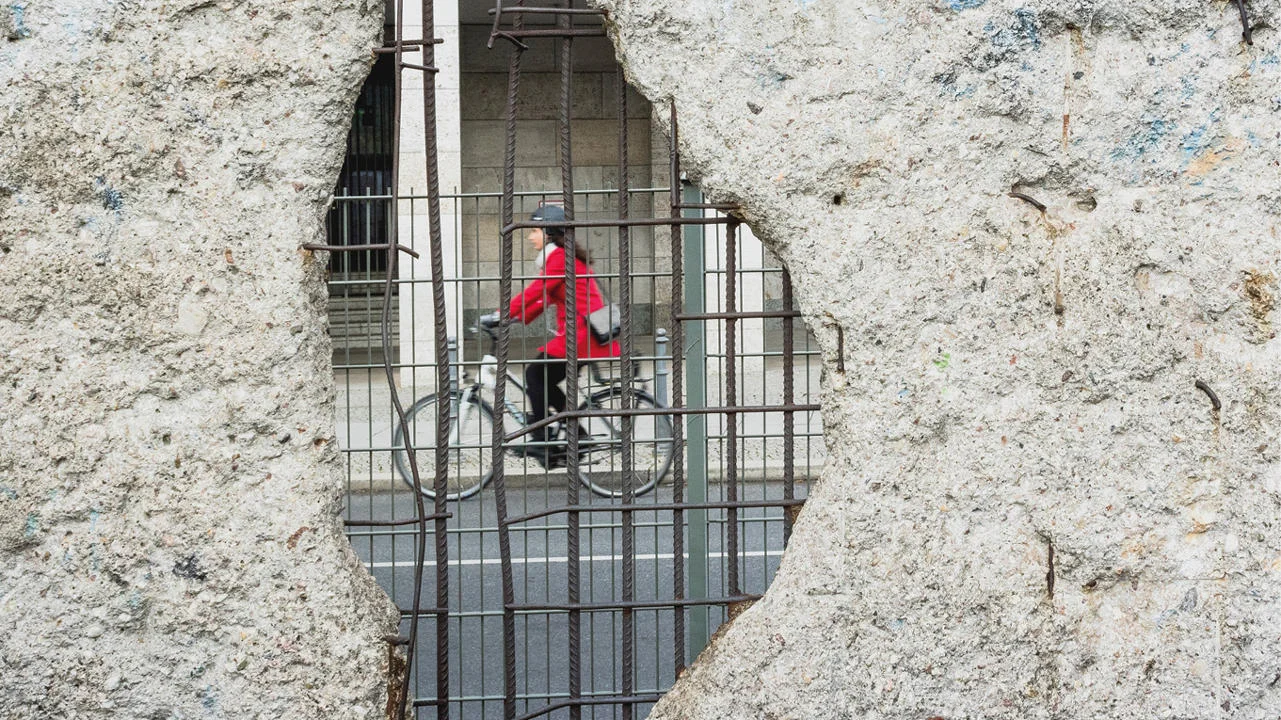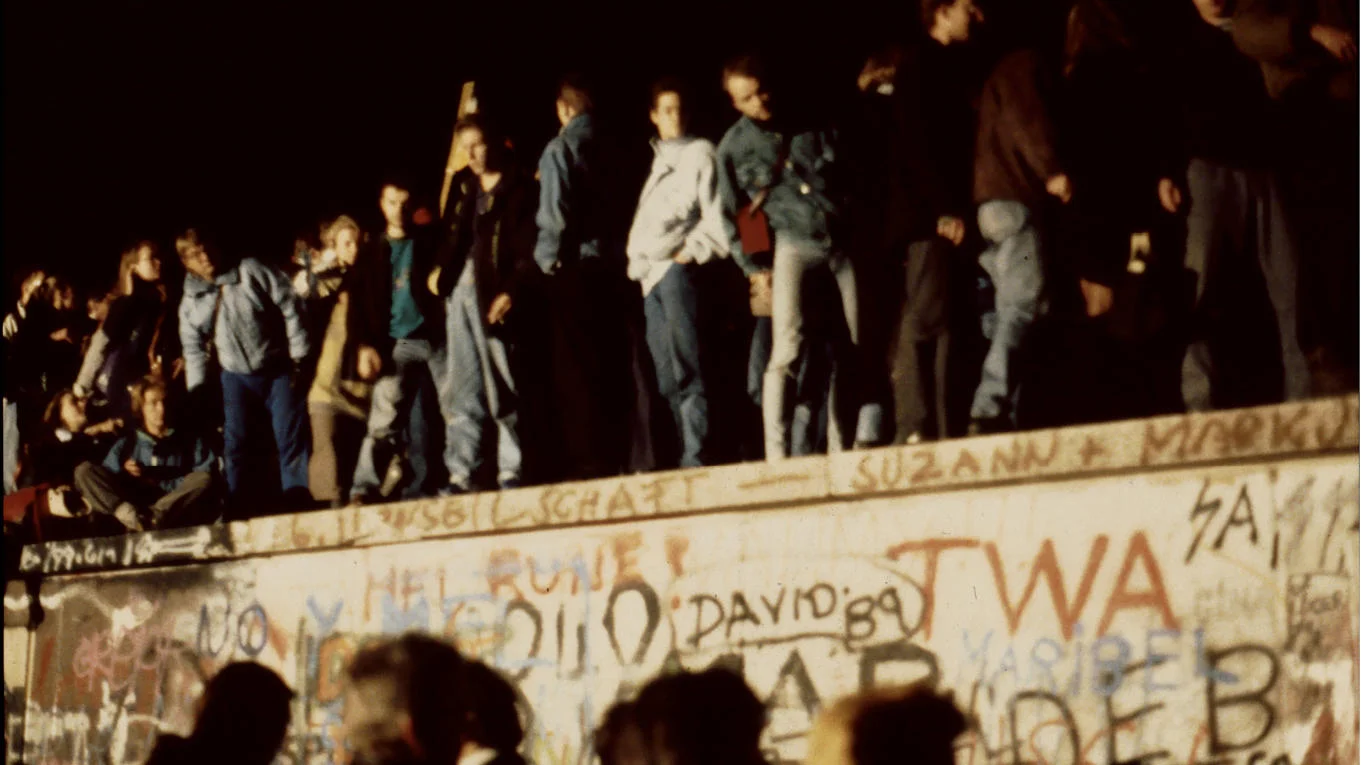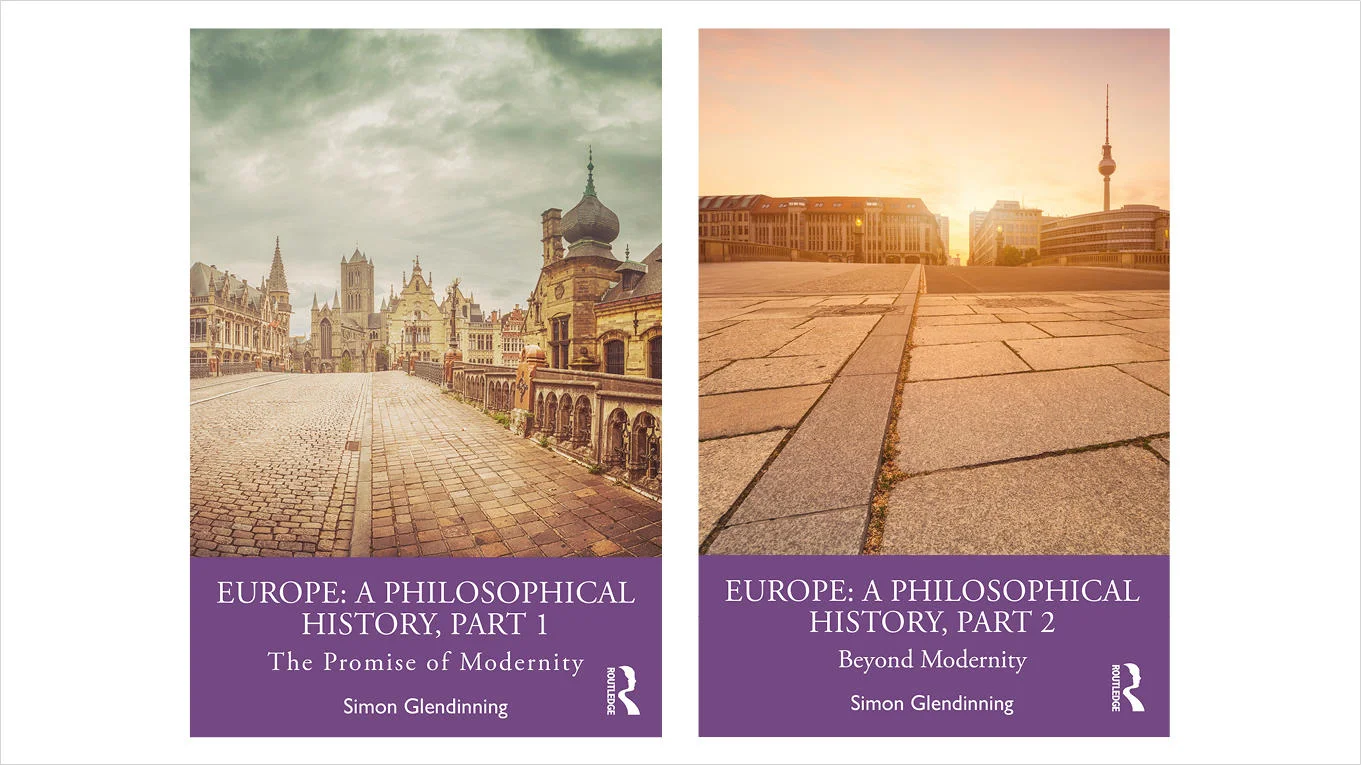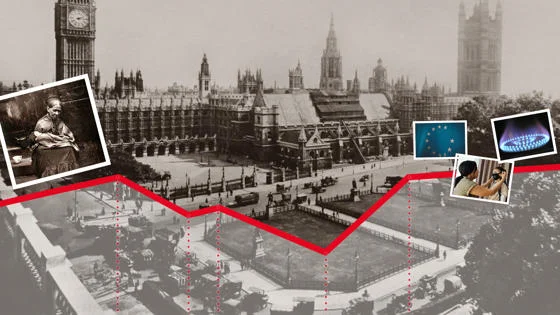Haunted by the end of history: a philosophical exploration of modern Europe

Contents
In 1784, the German philosopher Immanuel Kant wrote a short text on "The Idea of a Universal History from a Cosmopolitan Point of View". It outlined a philosophical vision of human history based on what he claimed to be "knowledge of an idea of Man". It was a vision of Great Progress for humanity towards universal peace, freedom and well-being – with modern Europe at the head of the pack.
Its vision of the universal history of mankind was simultaneously a discourse of Europe’s exemplary modernity. And it did not stop with Kant. In the first part of my two-volume book Europe: a philosophical history, I follow this vision as it recurs, intact and invariable, through the vicissitudes of Europe’s history up to the eve of the second terrible world war of European origin.
Could Europe’s old modern confidence survive? After two world wars, totalitarianism, Nazism, fascism, genocides, the Shoah, colonisation and decolonisation, Europe’s Enlightenment optimism in universal history appeared everywhere in tatters. The idea of a universal history of mankind with Europe at its centre seemed to belong to the dustbin of real history.
In the second part of my book, I pick up the story again almost exactly 200 years after Kant published his famous text, when events taking place in Europe brought philosophical history in its classic form back to life, and, in fact, back to all our lives.
A wall between two halves of a country could have no 'meaning' if the people were allowed to travel freely. It was over.

The fall of the Berlin Wall, the media’s response and "the end of history"
On 4 November 1989, half a million people marched in East Berlin to demand freedom of the press and freedom to travel. A plan was drawn up by the Communist Party leadership in the German Democratic Republic for a new travel law that would allow free movement to all countries, with the State using passports and exit visas to control the flow.
At 6pm on 9 November the daily press conference took place to announce the Party’s decisions. At 6.58pm, when the press conference was about to end, Daniel Johnson, a very young reporter for The Daily Telegraph, asked what he took to be "the most obvious question that came to mind":
"'Herr Schabowski, was wird mit der Berliner Mauer jetzt geschehen?' ['Mr Schabowski, what will happen to the Berlin Wall now?'] Hundreds of thousands of Germans on both sides of the Wall were watching: they wanted the answer, too… But he did not answer the question, because he had no answer. A wall between two halves of a country could have no 'meaning' if the people were allowed to travel freely. It was over."
Hundreds gathered at the Wall that evening, and began climbing it, dancing on it, and hacking great chunks out of it. They breached it from the eastern side – met with hugs and cheers from their fellow Germans on the western side. Shortly before midnight, somewhere in the chaos, a young East German, Angela Merkel, made it through the Bornholmer crossing. The division of Berlin, the division of Germany, the division of Europe, the divided world of the Cold War was all but over.
"To some extent", Daniel Johnson later reflected, "the media made the message". And it continued to do so in what philosopher Jacques Derrida called "the new stage of geopolitics" in which an international news media "made the message" as never before. And the basic message was not only the announcement of "the end of societies constructed on the Marxist model" but also "the end of the whole Marxist tradition" – and a new proclamation of "the end of history".
Many of those philosophers – uncomfortably too many – will have held fast to the idea that totalitarian terror in all the Eastern countries… was simply a Marxism ‘perverted’.
Francis Fukuyama’s response to post-Cold War Europe
No one articulated the post-Cold War euphoria with more confidence and optimism than Francis Fukuyama in his famous book The End of History and the Last Man, written in 1992, which argued that mankind had now reached the pinnacle of ideological evolution. It was not widely read in political science, his own discipline, perhaps in virtue of its philosophical ambition. It was not much read by Anglophone philosophers either, perhaps for the same reason.
But Fukuyama’s text became the intellectual loadstar of post-Cold-War celebration. Derrida, who did devote serious attention to it, was largely critical, especially regarding its conception of democracy as having an ideal end. But his opening comments were somewhat warmer than is likely remembered, and should give us pause:
"The book is not as bad or naïve as one might be led to think by the frenzied exploitation that exhibits it as the finest ideological showcase of victorious capitalism in a liberal democracy which has finally arrived at the plenitude of its ideal."
And he added: "It would seem neither just nor even interesting to accuse Fukuyama of the fate reserved for his book. One would do better to ask oneself why this book, with the 'good news' it claims to bring, has become such a media gadget."
The resurrection of philosophical history and the survival of Europe’s promise
What is most striking about Fukuyama’s text, but was almost never of media interest, is the type of discourse in which it was announced. Astonishingly, by "raising once again the question of whether there is such a thing as a Universal History", Fukuyama attempted to revive the classic form of philosophical history, claiming to see "a common evolutionary pattern for all human societies – in short something like a Universal History of mankind", and it was moving "in the direction of liberal democracy".
From its "beachhead in Western Europe", liberal democracy had been spreading worldwide, first to America and thence beyond, and, Fukuyama insisted, "there do not appear to be viable alternatives" to it: "we cannot picture to ourselves a world that is essentially different from the present one, and at the same time better".
With the fall of the Berlin Wall, a more or less global public will have been faced with questions which had already occupied post-war philosophers in Europe. Many of those philosophers – uncomfortably too many – will have held fast to the idea that totalitarian terror in all the Eastern countries, and all the socio-economic disasters of Soviet bureaucracy, was simply a Marxism "perverted", and not, as Derrida affirmed, the upshot of "perversions that some have been saying for a long time are precisely not perversions… but the deployment of an essential logic present at the birth". Nevertheless, the questions about the end of history and the end of Marxism that had belonged for some time only to the backwater reflections of philosophers, their "daily bread" as Derrida put it, were suddenly… everyone’s.
With the "empirical flow of events" in eastern and central Europe at the end of the 20th century in view, Fukuyama saw solid reason to reject earlier 20th century pessimism, and to embrace the affirmation of the advent of "good news", writing: "To Kant’s question, Is it possible to write a Universal History from a cosmopolitan point of view? Our provisional answer is yes".
But Fukuyama’s answer was provisional, and the new optimism proved temporary. In the second part of my two-volume book, I follow the course of Europe’s history in relation to Kant’s question into our time, and try to find what, if anything, can still be rescued in the promise of Europe’s modernity.

Banner image: Unsplash/Morgana Bartolomei
Download a PDF version of this article




